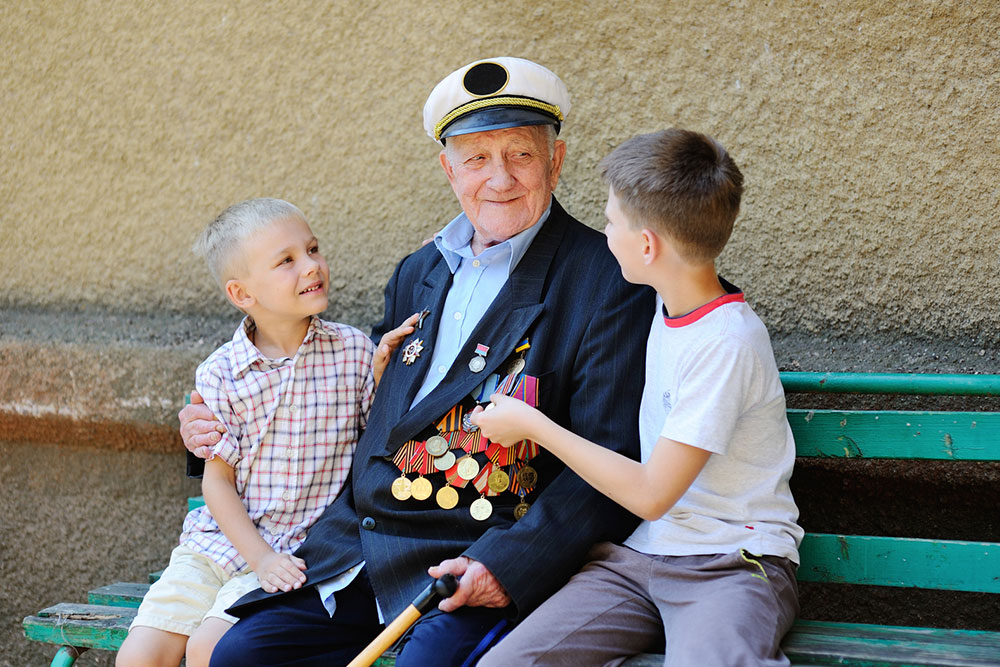5 lesser-known benefits that can help veterans save money

It is a well-known fact that veterans enjoy financial assistance for education and healthcare through the Department of Veterans Affairs. However, these are not the only benefits they are entitled to. Veterans can also opt for other programs to save money and maintain an ideal lifestyle. Sadly, not many are up to date with these additional perks, causing them to miss out. Here are some of the lesser-known veteran benefits to consider.
Long-term health care
Long-term care can be pretty expensive. Still, many only save for it once it becomes a total necessity. While most veterans understand the basic health care they are entitled to, long-term care assistance is a lesser-known but equally crucial benefit they can access. Several programs help veterans lower their overall expenditure whenever they need continuous support. Some long-term care services offered by the Department of Veterans Affairs (VA) include the following:
- Home health care and adult day care: The VA provides home health services to veterans who want to stay home while recovering. These services include nursing care, physical therapy, and assistance with daily tasks like bathing, dressing, and meal preparations. In addition, veterans have access to adult day healthcare services if they require care only during the day. These services include assistance with social activities, companionship, and essential health services.
- Respite care: Looking after a loved one can be rewarding yet overwhelming. If a veteran’s caregiver needs temporary breaks, they can seek the VA’s respite care services. These services are available at home, local VA community living centers, and adult day healthcare centers.
- Hospice care: The VA provides hospice care services to veterans with terminal health conditions. These services focus on pain management, emotional support, and assistance to enhance the quality of life.
- Nursing home care: VA nursing homes and state veterans homes look after veterans with complex healthcare requirements. Eligibility for nursing home care depends on several factors, including military service history, disability status, and income level.
Caregiver support
Veterans who return home with injuries or illnesses related to their service and those undergoing aging may require care. To support such veterans, the VA provides caregiver services through the Caregiver Support Programs. These programs provide the veteran’s family members with valuable and essential resources to help them perform their roles effectively. For instance, the caregiver may receive assistance from a Caregiver Support Coordinator (CSC), who is a licensed professional. They help the veteran’s family members gain access to a range of services that enable them to provide the best care for the veteran while also taking care of themselves.
Another great Caregiver Support Program is the Program of Comprehensive Assistance for Family Caregivers (PCAFC). The benefits offered by this program include the following:
- A monthly stipend
- Access to healthcare benefits
- Caregiver training
- Mental health services
- Respite care
Non-college degree programs/certificates
The VA’s higher education assistance programs are pretty popular. However, many are unaware of the schemes that assist with non-college degree programs and certificates. Many veterans pursue these non-college educational opportunities for fulfilling and successful careers. Through these programs, veterans can seek training to gain employment directly in emergency health services, truck driving, computer networking, HVAC repair, and other high-demand sectors. The VA supports veterans in pursuing programs designed to give practical and hands-on training. Assistance is offered through the following:
- Post-9/11 GI Bill: This is one of the most valuable benefits not many know. The Post-9/11 GI Bill covers programs beyond the conventional four-year degree courses. These include vocational and technical training programs, apprenticeships, on-the-job training, flight training, correspondence training, licensing and national testing programs, entrepreneurship training, and continuing education programs.
- VA’s Vocational Rehabilitation and Employment (VR&E) services: These services are designed to provide employment and assistance to veterans with service-connected disabilities. For instance, one may get assistance with interview training, honing transferable skills, job search assistance, and other support to gain suitable employment.
Free tax preparation
Another lesser-known benefit is assistance with tax preparation. The VA provides resources and support to veterans to simplify their tax filing process. Consequently, they can maximize their returns without paying extra. The following are three notable free tax preparation services for veterans.
- Volunteer Income Tax Assistance (VITA) program: This program by the IRS provides free tax filing assistance to those whose income is less than $75,000, persons with disabilities, seniors, and limited-English-speaking taxpayers. VITA services are also offered to veterans, regardless of their overall income. These services are provided through IRS-certified volunteers trained to assist in preparing basic tax returns.
- Armed Forces Tax Council (AFTC): The AFTC monitors the operation of military tax programs globally. They also provide services like free tax advice, tax preparation, and tax assistance to veterans, military members, and their families.
- Veterans Business Outreach Center (VBOC) program: The IRS’s Veterans Business Outreach Center (VBOC) program assists veterans who run small businesses. It offers free business plan workshops and training to help veterans understand their tax obligations as small business owners.
Mortgage assistance
Since managing home loans and mortgages can get complex, the VA offers unique options to make the process easier and affordable for veterans. One lesser-known option is the Home Loan Guaranty Benefit (also referred to as VA loan). Although private lending services offer this loan, one can ask the VA to guarantee a percentage of it. The VA loan can be used multiple times to buy a primary home or to refinance existing home loans. The advantage is that lenders offer more favorable terms considering the VA’s guarantee on the loan. Moreover, one enjoys zero or minimal down payments and competitive interest rates.
Besides loans, the VA offers housing grants to veterans with service-related disabilities who need to modify their homes and make them more accessible. In some cases, veterans also get financial assistance to purchase a home that will accommodate their disability.







